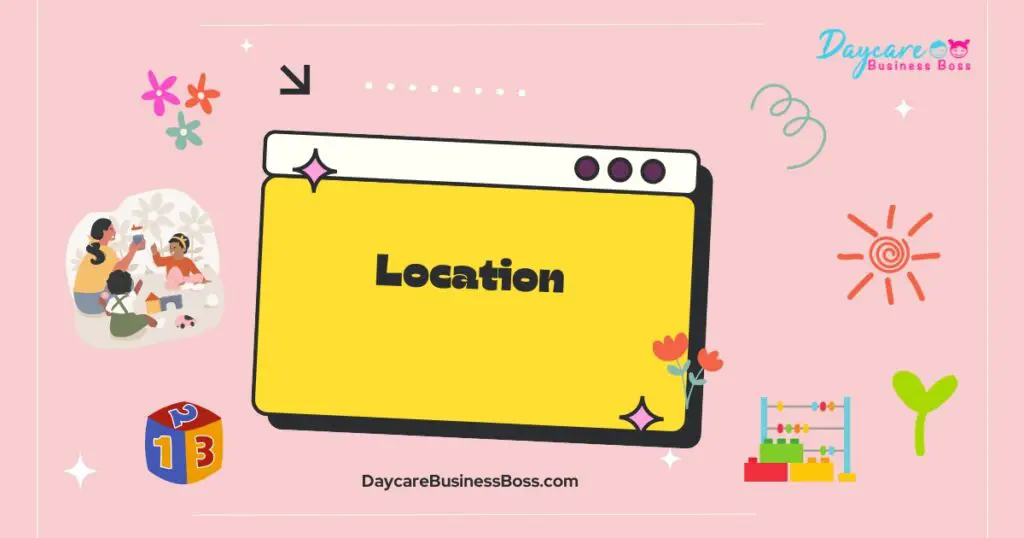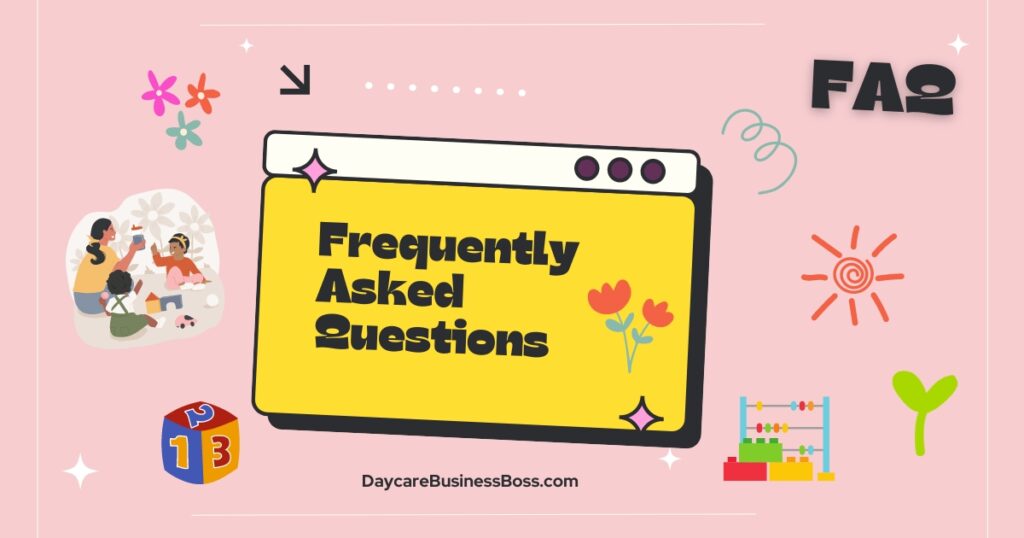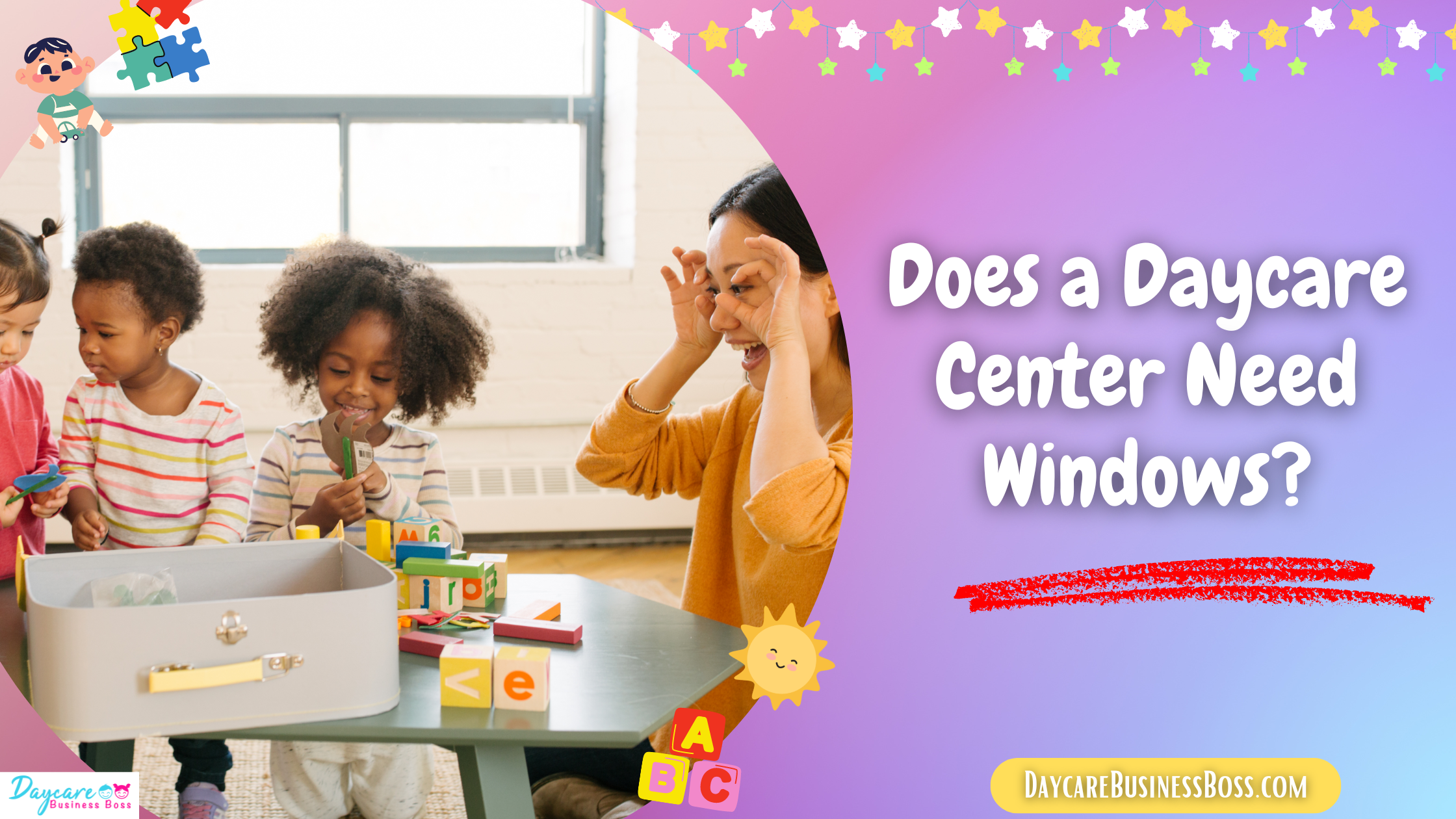If you are looking to start a daycare business, you know how important it is to comply with all the safety laws and regulations. As you may know, there are stringent laws appointed by the State, the fire department, the health department, and other institutions related to child safety and childcare. Thus, most entrepreneurs are especially careful when selecting a location for a daycare center.
As an experienced caregiver and successful entrepreneur, I get asked a lot of questions. In recent years, one of the most popular has been: “Does my daycare center need windows?” Unfortunately, there is no definitive answer. Depending on your registration/licensing, the location of your center, safety regulations, and other critical factors, a daycare center may be required to have windows.
The U.S. General Services Administration (GSA) is one of the entities responsible for dictating the standards when it comes to childcare centers’ construction guidelines. Nonetheless, note that each state, county, and city has its own set of laws and regulations that prevail.
Importance of Natural Lighting
Natural lighting is essential in childcare centers as it is considered vital for nurturing and child development. Daycares are expected to have access to copious amounts of natural light. More so, natural lighting throughout the entire space is considered ideal by most parents and caregivers. Locations without any access to natural light like windows or skylights, should not be used for centers that take care of children under the age of two.
Note that the GSA’s requirements can be mandatory or merely recommended criteria. Also, other factors come into play when deciding if a daycare center needs to have windows. Below are the most determining factors that will help you make a decision as to whether you should add windows to your existing daycare or consider an entirely different location:
Licensing
If you are a licensed daycare operating from a commercial facility, regulations tend to be more strict. On the other hand, if you are a private entity working from home, there is usually more wiggle room as to what is obliged.
For instance, for licensed daycares, classrooms with windows need to have abundant natural light. If the natural light source is insufficient, alternative lights with high color rendition are required. On the contrary, if a room has no windows, it must include full-spectrum, indirect lighting and have a variety of light sources.
Home-based daycares are not necessarily required by law to have windows or natural light sources as they are considered ‘private.’ Besides, in some cases, these types of centers are not even registered as businesses (something I do not recommend). However, even if it is not required by law, consider adapting the space to have at least one natural light source.
Location

Home-based daycares are usually developed in spaces that tend to lack good natural lighting or in areas that do not have windows (e.g., basements). If this is your case, consider making small changes to the area for it to be better suited for children.
I recommend painting the walls in light colors such as a pastel blue, light yellow, or off-white color. Ceilings should be left white, especially if they are lower than usual. Also, play around with your pieces of furniture — some distributions (especially horizontal layouts) can make a room seem wider.
Besides, I always suggest choosing halogen lights over incandescent bulbs, as these tend to be brighter. Moreover, avoid installing overhead lighting fixtures, even though this might look ‘cute,’ they are more often than not, weak sources of light.
When speaking about the location as a determining factor, consider not only the actual physical space but also your geographical location. Areas of the country with rainy weather or very long winters (e.g., Seattle, Washington, New York) require additional artificial light sources. Why? Simple, in places like the ones mentioned above, daytime is limited to a few hours a day. Hence, if your daycare is located up North, windows may be more imperative than in states like Florida or California.
In the case of licensed daycares, the State may require basements to follow specific guidelines for them to be considered fit for childcare. The State of New York, for example, asks that all centers operating from basements need to:
- Have a minimum of one window that faces the outside of the building or a courtyard.
- Lighting should allow for comfort and meet the required needs of childcare activities.
- If basement lighting appears dim, further lighting or adaptations must be made before a license can be granted.
*For additional information on New York’s regulations, visit the New York State Office of Children & Family Services’ website. For information on any other U.S. state, visit their local site.
Safety
As you may know, a licensed or registered daycare or childcare providing facility must pass a fire and safety inspection that is conducted regularly by the local fire department.
There are many regulations that you must keep in mind. These rules range from the number of children permitted per square foot, to having functioning (and accessible) fire extinguishers. No, there is no specific rule that states that a licensed childcare facility needs to have one, two, or ‘X’ number of windows. Nonetheless, it is required by law that:
- All ‘Exit’ signs are lighted.
- Adequate standard lighting and emergency lighting must be provided.
- Outlets and extension cords are of the proper size and not overloaded.
- The structure needs to have two means of egress from every occupied room. In case one of this egress is a window, it must be 45 inches or wider and lead to the outside.
Thus, consider all of these safety regulations. Because, even though they are directly related to the existence of windows, they can be more or less affected based on it. For instance, if you do not have windows in a particular room, the odds are that you will have more than one light source connected to a switch. Hence, consider point number 3.
Unlicensed or private care centers do not need to pass a regular examination. But, this does not mean that you will not be inspected by the Fire Department. Home-based childcare structures need to comply with basic safety guidelines. For example, if the center is located in a basement, the exit and the mechanical room need to be separated by a one-hour enclosure or equivalent.
I recommend you inquire what the regulations demanded by your local Fire Department are, to avoid legal repercussions. Also, parents are more likely to leave their children in your care if they know you comply with all safety procedures.
Key Takeaways
I know this is a lot of information to process, and that some of it may seem somewhat technical or hard to understand. As a result, I decided to summarize the key takeaways for you to make an educated decision as to whether or not you should include windows in your daycare center:
- Light plays a vital role in nurturing and child development.
- Windows are the best source of natural lighting.
- Licensed and unlicensed daycare centers have different sets of regulations.
- The U.S. General Services Administration (GSA) sets the standard for childcare’s space laws and compliances.
- Your physical and geographical location can drastically determine if you are obliged to have widows or not.
- As long as you comply with safety features, you can operate a daycare from an area with no windows; such as a basement.
- Your local Fire Department will inspect your facility even if you are not licensed.
- If you are a licensed daycare facility, fire inspections can be done monthly, annually or without previous notice.
- There are various ways in which you can compensate for not having windows such as light walls, tall ceilings, minimalistic furniture, and so on.
- Parents prefer childcare centers where kids are exposed to natural light.
Related Questions

What are the legal implications of unsafe childcare centers?
As a childcare provider, you and your staff are legally responsible for the children in your care. So, if a child is injured, gets food poisoning, or in extreme case scenarios is abducted or sexually /physically abused the center’s owner and personnel would need to respond to the authorities. Depending, on the nature of the accident, legal implications, can go from a sanction or admonition to lawsuits or incarceration.
Are outside playgrounds or external play areas required in all daycare centers?
No law specifically requires you to have an outdoor playground, but playing outside is undoubtedly one of the preferred activities for children. It is also a great way of allowing them to coexist with other kids without the rigidness of a classroom.
Consequently, to the greatest extent possible, you should try to habilitate a safe area outside of the classroom, where children can freely run, jump, and play. Keep in mind that for licensed daycare, there might be additional regulations and safety issues to consider.
Please note: This blog post is for educational purposes only and does not constitute legal advice. Please consult a legal expert to address your specific needs.
Ready to get started with opening your daycare business? Click here for our free ebook!

Meet Shawn Chun: Entrepreneur and Childcare Business Fan.
I’m a happy individual who happens to be an entrepreneur. I have owned several types of businesses in my life from a coffee shop to an import and export business to an online review business plus a few more and now I create online daycare business resources for those interested in starting new ventures. It’s demanding work but I love it. I do it for those passionate about their business and their goals. That’s why when I meet a childcare business owner, I see myself. I know how hard the struggle is to retain clients, find good employees and keep the business growing all while trying to stay competitive.
That’s why I created Daycare Business Boss: I want to help childcare business owners like you build a thriving business that brings you endless joy and supports your ideal lifestyle.

